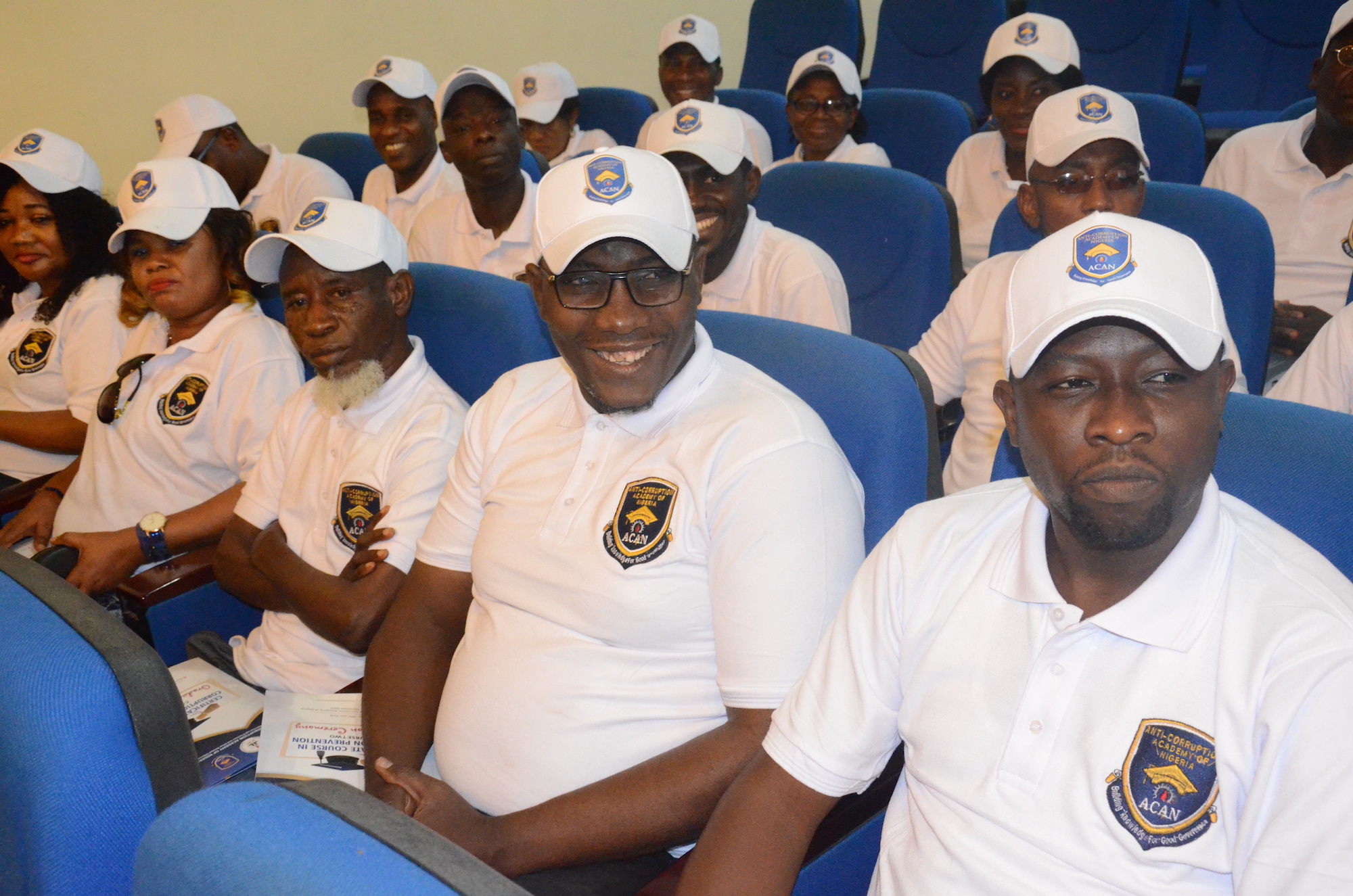After four weeks of intensive physical and academic exercise, the Anti-Corruption Academy of Nigeria (ACAN), the research and training arm of the Independent Corrupt Practices and Other Related Offences Commission (ICPC), has graduated participants of the 2nd Certificate Course in Corruption Prevention.
The graduands numbering 23 were drawn from the Nigeria Customs Service; Code of Conduct Bureau; Joint Admission and Matriculation Board; Federal Ministry of Transportation; Federal Teaching Hospital, Ido Ekiti; Ministry of Niger Delta Affairs; Tertiary Education Trust Fund; Oil and Gas Free Zones Authority; National Inland Waterways Authority; Petroleum Equalization Fund and Kano State Public Complaints and Anti-Corruption Commission.
Speaking during the brief ceremony which was held at the Academy’s main auditorium in Keffi, Nasarawa State, the ICPC Chairman, Professor Bolaji Owasanoye, who was represented by one of the Commission’s board members, Alhaji Abdullahi Maikano, stated that corruption prevention was one of the most fundamental aspects of the fight against the menace.
Professor Owasanoye explained that the aim of the Certificate Course in Corruption Prevention was not only to provide a comprehensive and coherent education and professional training package in support of the on-going effort to combat corruption in Nigeria, but to also have a curriculum that would have relevance to the situation of other developing countries.
The Chairman further revealed that the course which was “primarily targeted at practitioners in the anti-corruption agencies with prevention mandates, has also been made available to all public sector agencies particularly as it would help every agency in developing their corruption prevention strategies.“
The ICPC boss therefore enjoined the graduating participants to deploy the skills and knowledge they had acquired during the training to turn their agencies into integrity-compliant organizations.
Also, speaking earlier in his welcome remarks, the Provost of the Academy, Professor Sola Akinrinade, said that the Certificate Course in Corruption Prevention was a product of a support from the United Nations Office on Drugs and Crime (UNODC), “which worked with the Academy to develop a course to build the capacity of Anti-Corruption practitioners in the country.”
Professor Akinrinade noted that at the Academy, they do not subscribe to the widespread notion that fighting corruption in Nigeria was a lost cause.
“Corruption and related crimes can be controlled or managed through a system of training and re-training, geared towards sound policy formation, operational efficiency and good management culture,” the Provost stressed.
In her goodwill message during the graduation ceremony, Mrs. Henrietta Bobai, who represented the Executive Secretary of Petroleum Equalization Fund, expressed delight over the training saying that such a course would help curb issues of corruption in the downstream oil sector.
Speaking as well at the event, the overall best participant, Musa Ibrahim Usman of Code of Conduct Bureau, spoke on how the Course had changed his perspective of corruption.
According to him, before the training he used to have a myopic thought on what corruption was all about, but now the narrative has changed. He promised to bring to bear what he had learnt in his workplace.

